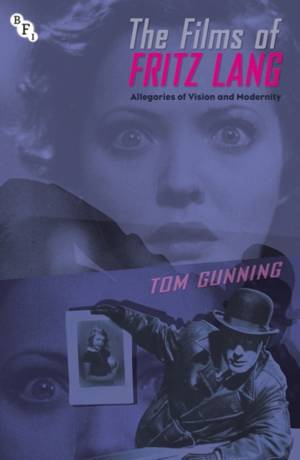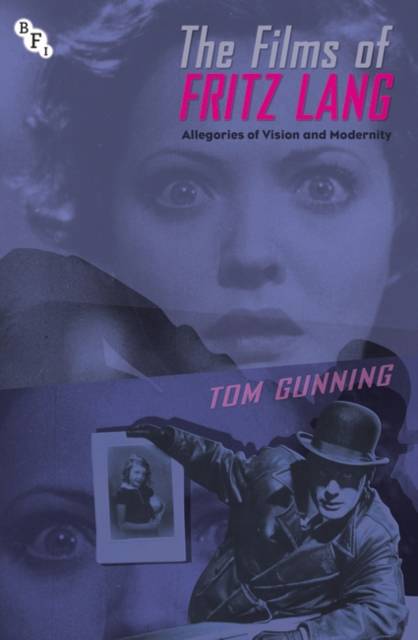
Je cadeautjes zeker op tijd in huis hebben voor de feestdagen? Kom langs in onze winkels en vind het perfecte geschenk!
- Afhalen na 1 uur in een winkel met voorraad
- Gratis thuislevering in België vanaf € 30
- Ruim aanbod met 7 miljoen producten
Je cadeautjes zeker op tijd in huis hebben voor de feestdagen? Kom langs in onze winkels en vind het perfecte geschenk!
- Afhalen na 1 uur in een winkel met voorraad
- Gratis thuislevering in België vanaf € 30
- Ruim aanbod met 7 miljoen producten
Zoeken
The Films of Fritz Lang: Allegories of Vision and Modernity
Allegories of Vision and Modernity
Tom Gunning
Paperback | Engels
€ 79,95
+ 159 punten
Omschrijving
ln this volume Tom Gunning examines the films of Fritz Lang not only as a stylistically coherent body of work, but as an attempt to portray the modern world through cinema. The world of modernity in which systems replace individuals is conveyed by Lang's mastery of cinematic set design, composition and editing. Lang presents not only a decades-long vision of cinematic narrative which can be compared to that of Alfred Hitchcock or Jean Renoir, but a view of modernity that relates strongly to the ideas of Adorno, Brecht, Benjamin and Kracauer. From the sweeping allegorical films of the 20s to the chilly and abstract thrillers of the 50s, Lang's films, Gunning claims, are 'among the most precious records of the twentieth century'. The Films of Fritz Lang immeasurably enriches our understanding of a great artist and, in so doing, reimagines what a film arlist is: an author who fades away even in being recognised and interpreted, an enigmatic figure at the junction of aesthetics, history, biography and theory.
Specificaties
Betrokkenen
- Auteur(s):
- Uitgeverij:
Inhoud
- Aantal bladzijden:
- 528
- Taal:
- Engels
Eigenschappen
- Productcode (EAN):
- 9780851707433
- Verschijningsdatum:
- 28/03/2000
- Uitvoering:
- Paperback
- Formaat:
- Trade paperback (VS)
- Afmetingen:
- 152 mm x 237 mm
- Gewicht:
- 866 g

Alleen bij Standaard Boekhandel
+ 159 punten op je klantenkaart van Standaard Boekhandel
Beoordelingen
We publiceren alleen reviews die voldoen aan de voorwaarden voor reviews. Bekijk onze voorwaarden voor reviews.









